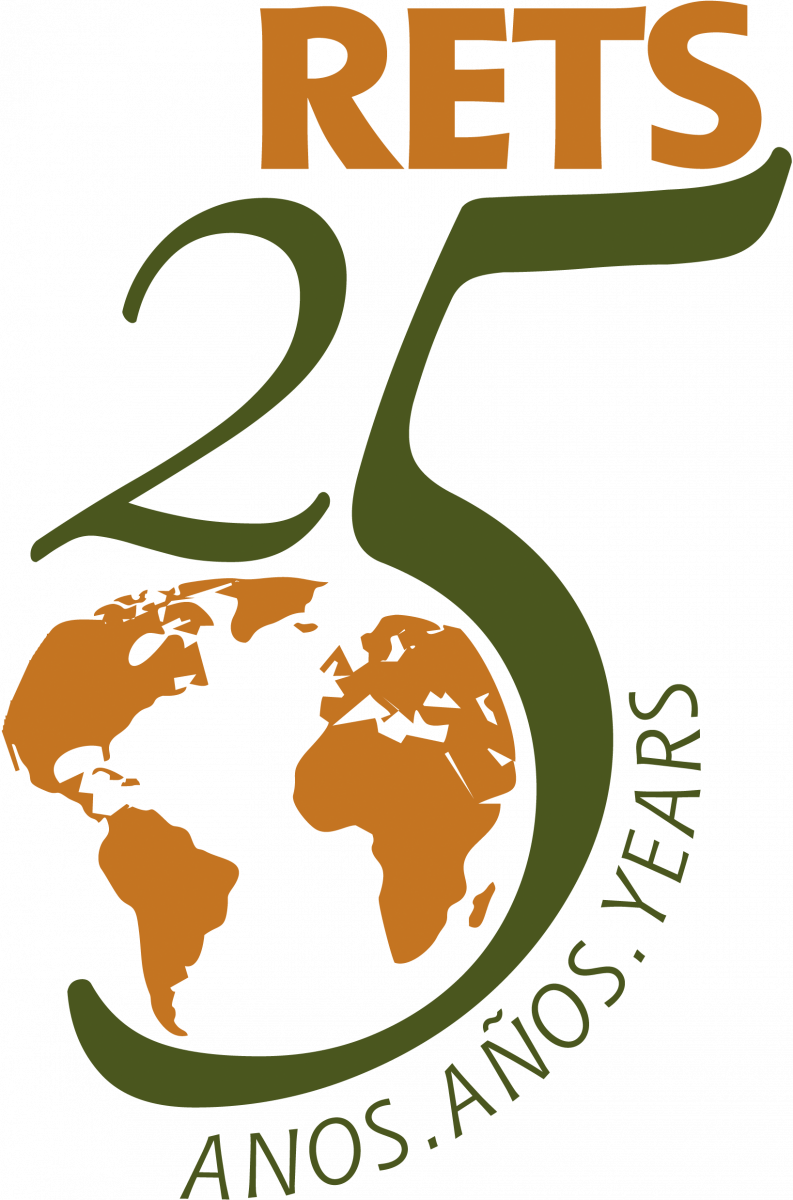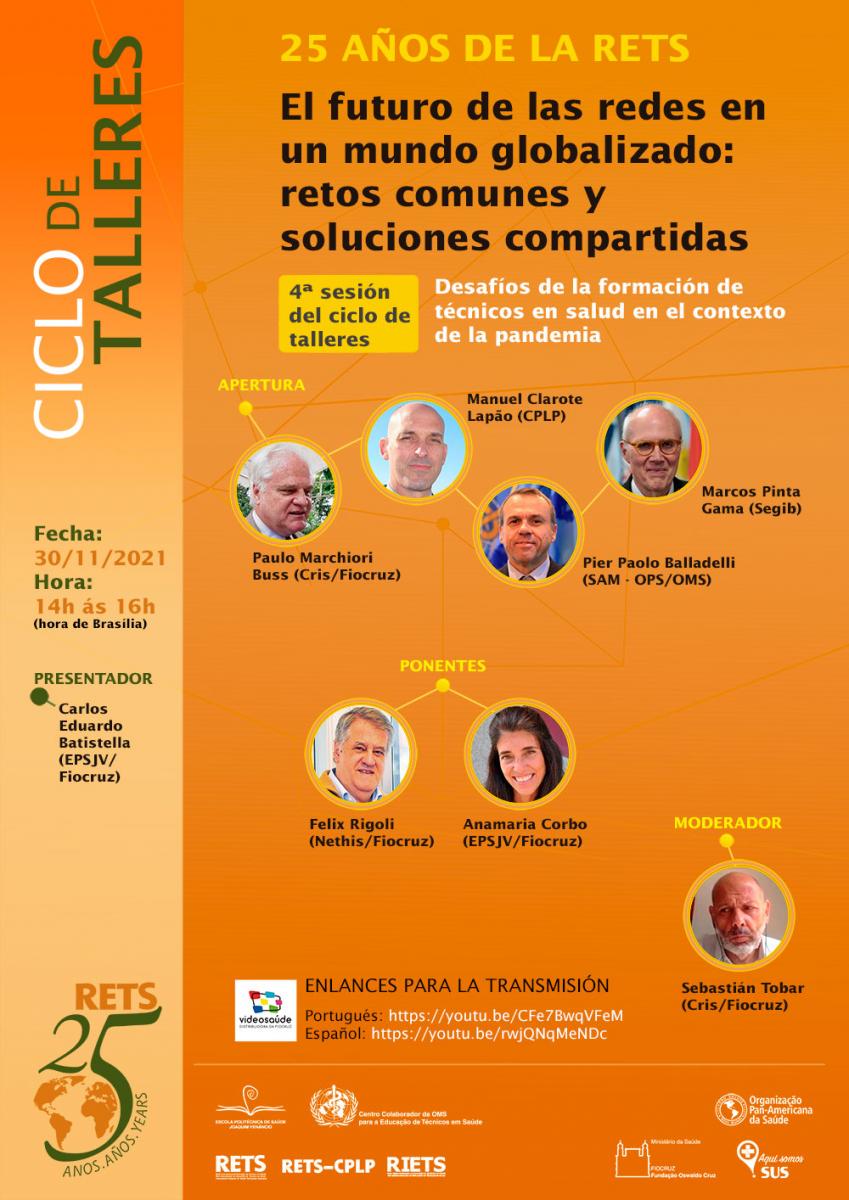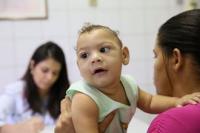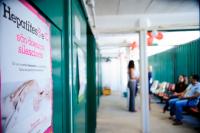25 years of RETS - The future of networks in a globalized world: common challenges and shared solutions
 The International Network of Health Technicians Education (RETS), whose Executive Secretariat is based at the Joaquim Venâncio Polytechnic School of Health (EPSJV/Fiocruz), completed 25 years of existence in August 2021. The commemorative event will take place on November 30th, from 2 pm to 4 pm (Brasília time), as part of the Workshop Cycle 'Challenges of training health technicians in the context of the pandemic'.
The International Network of Health Technicians Education (RETS), whose Executive Secretariat is based at the Joaquim Venâncio Polytechnic School of Health (EPSJV/Fiocruz), completed 25 years of existence in August 2021. The commemorative event will take place on November 30th, from 2 pm to 4 pm (Brasília time), as part of the Workshop Cycle 'Challenges of training health technicians in the context of the pandemic'.
The closing of a cycle should always be a cause for celebration. In the case of cooperation between institutions focused on the training of health technicians, this moment shows the strength of the exchange and represents the defense and commitment to strengthening national health systems. However, more than celebrating a collaborative effort over 25 years, we want to look to the future, identify the challenges of the new contexts and the possibilities of intervention based on networking that present themselves. Join us!
Date: November 30, 2021
Time: 2 pm to 4 pm (Brasília time)
Local: VideoSaúde/Fiocruz Youtube Channel
-
Transmission in Portuguese: https://youtu.be/CFe7BwqVFeM
-
Transmission in Spanish: https://youtu.be/rwjQNqMeNDc
The future of networks in a globalized world: common challenges and shared solutions
 In this fourth workshop, the last of 2021, we will look at networking and reflect on its importance in such dramatic times for humanity. Entitled 'The future of networks in a globalized world: common challenges and shared solutions, the workshop starts from the observation that, if on the one hand, the Covid-19 pandemic represented a problem common to all countries, favoring cooperative work and networking in the search for solutions, on the other hand, it revealed the historic structural inequalities in the ability to establish quick and effective responses for its control. If the metaphor that "we are all on the same sea" is valid, it is also true that the boats are not the same, nor do they have the same capacity to weather the storm.
In this fourth workshop, the last of 2021, we will look at networking and reflect on its importance in such dramatic times for humanity. Entitled 'The future of networks in a globalized world: common challenges and shared solutions, the workshop starts from the observation that, if on the one hand, the Covid-19 pandemic represented a problem common to all countries, favoring cooperative work and networking in the search for solutions, on the other hand, it revealed the historic structural inequalities in the ability to establish quick and effective responses for its control. If the metaphor that "we are all on the same sea" is valid, it is also true that the boats are not the same, nor do they have the same capacity to weather the storm.
If in the pre-pandemic period the eco-aggressive and exclusionary globalization model already accumulated an unprecedented environmental and social liability, with the pandemic and the generalized fall in the economies' Gross Domestic Product, the discourse in defense of fiscal adjustments in the countries' public budgets, with a direct impact on health care financing, has intensified. In the framework of re-emerging nationalism, the lack of scientific evidence has favored the infodemic, and the multilateral cooperation mechanisms of organizations like the PAHO/WHO has material fatigue, since their normative role does not establish binding decisions for countries.
On the other hand, the overvaluation of the biomedical model in the care of critically ill patients took place to the detriment of the valorization of the strategic role of Primary Health Care in the reduction of transmission and in the follow-up of mild symptomatic patients. The disarticulation of PHC due to the priority given to hospital care in Covid-19 also contributed to the discontinuity in care and the damming of non-communicable chronic diseases in the territories.
As a counterpoint to this scenario, another model of structuring cooperation begins to show itself more effective: through the construction of democratic and participatory knowledge networks, public institutions, Collaborating Centers and civil society work in the direction and conception of the regional public good, subsidizing multilateral organizations and influencing public policies for the management of education and work in health.
The objective of this fourth workshop, therefore, is to discuss the future of networks in the post-pandemic world and especially of health technician training networks. To what extent can the advance of virtuality favor the expansion of inter-institutional relationships in the context of international cooperation? How to deal with the phenomenon of fluctuating membership in the networks? How to favor the emergence of new protagonists and a multipolar perspective of contributions to the network?
The workshop will be coordinated by Carlos Eduardo Batistella, coordinator of International Cooperation at EPSJV/Fiocruz. At the opening will be present: Paulo Marchiori Buss, president and current coordinator of the Center for International Relations in Health at Fiocruz (Cris/Fiocruz); Manuel Clarote Lapão, director of Cooperation of the Executive Secretariat of the CPLP; Pier Paolo Balladelli, director of the Subregional Program for South America of PAHO/WHO and a representative of the Ibero-American General Secretariat (Segib). The debate will be mediated by Sebastián Tobar (Cris/Fiocruz) and will bring together Anamaria Corbo, director of EPSJV/Fiocruz, and Felix Rigoli, who currently works as a consultant for the Center for Studies on Bioethics and Diplomacy in Health (Nethis) at Fiocruz Brasília.
About the workshop cycle
Since the beginning of 2020, with the interruption of classroom activities to prevent the spread of the virus, training institutions have been faced with the dilemma of reinventing their daily school routine in a short period of time and under completely adverse conditions to continue to carry out their mission with students and society.
With this in mind, the Joaquim Venâncio Polytechnic School of Health (EPSJV/Fiocruz), as a PAHO/WHO Collaborating Center for Health Technician Education, in cooperation with the International Network for Health Technician Education (RETS) the Ibero-American Network of Health Technician Education (RIETS) and the Network of Technical Health Schools of the Community of Portuguese-speaking Countries (RETS-CPLP), launched the workshop cycle 'Challenges of training health technicians in the context of the pandemic'.
The first workshop, held on July 6th this year, addressed the issue of 'Professionalizing practices'; the second, held on August 31st, focused on 'Work and teacher training', and the third workshop held on October 26th brought to the debate the 'New profiles and attributions of health technicians to work in Primary Health Care'.
The purpose of the initiative is to generate a space for exchange, reflection, learning, and formulation of proposals about the concrete experiences of how different educational institutions have faced these challenges and achieved their goals.
The workshops are being held every 45 or 60 days, in Portuguese and Spanish, with a duration of two hours. The proposal is to present, in each workshop, experiences made by institutions that are part of the Networks, in order to allow the debate and exchange among those present. Based on the themes discussed during the debate, topics of interest for the next workshops are defined.



